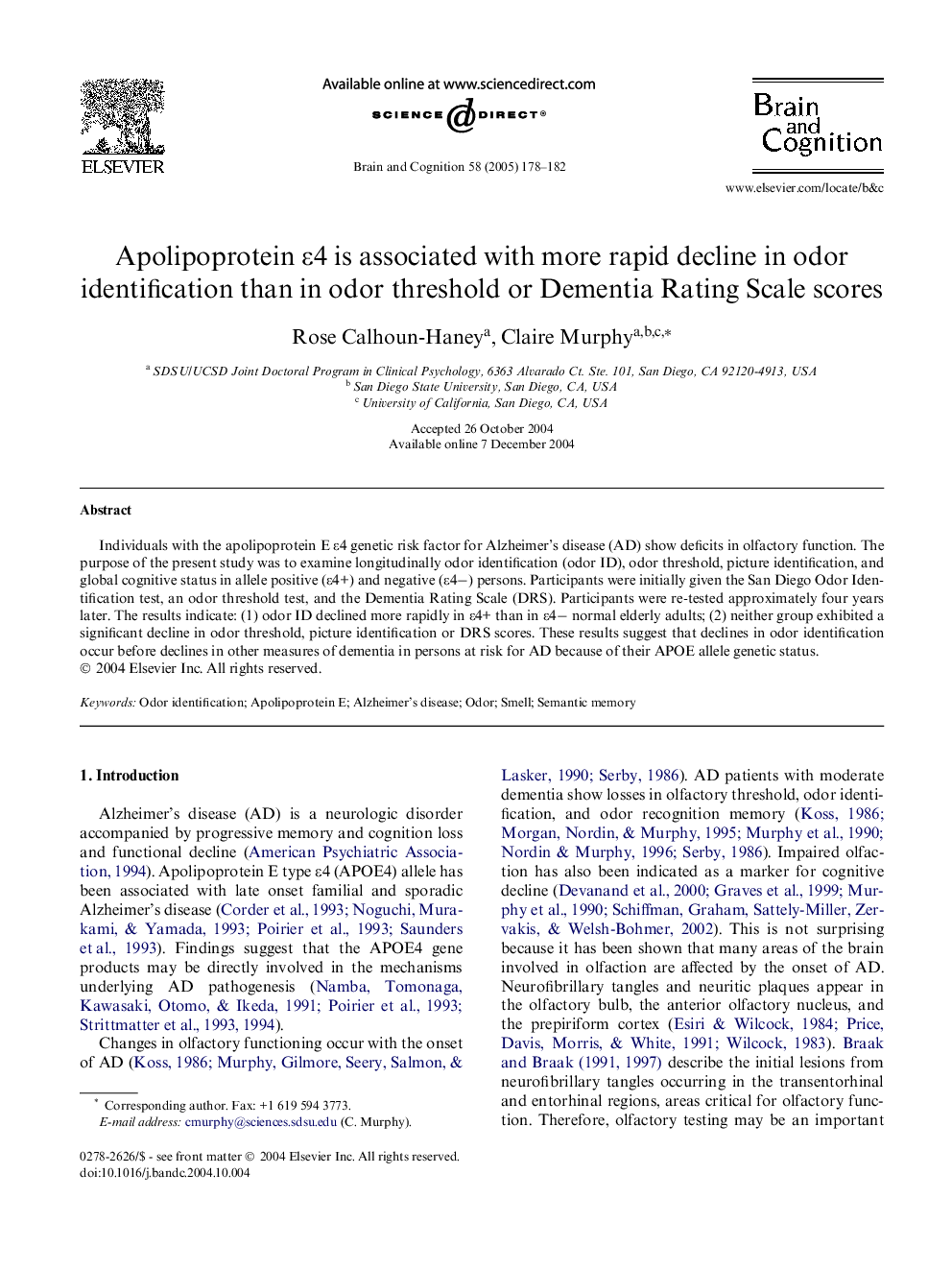| Article ID | Journal | Published Year | Pages | File Type |
|---|---|---|---|---|
| 10456245 | Brain and Cognition | 2005 | 5 Pages |
Abstract
Individuals with the apolipoprotein E ε4 genetic risk factor for Alzheimer's disease (AD) show deficits in olfactory function. The purpose of the present study was to examine longitudinally odor identification (odor ID), odor threshold, picture identification, and global cognitive status in allele positive (ε4+) and negative (ε4â) persons. Participants were initially given the San Diego Odor Identification test, an odor threshold test, and the Dementia Rating Scale (DRS). Participants were re-tested approximately four years later. The results indicate: (1) odor ID declined more rapidly in ε4+ than in ε4â normal elderly adults; (2) neither group exhibited a significant decline in odor threshold, picture identification or DRS scores. These results suggest that declines in odor identification occur before declines in other measures of dementia in persons at risk for AD because of their APOE allele genetic status.
Related Topics
Life Sciences
Neuroscience
Cognitive Neuroscience
Authors
Rose Calhoun-Haney, Claire Murphy,
